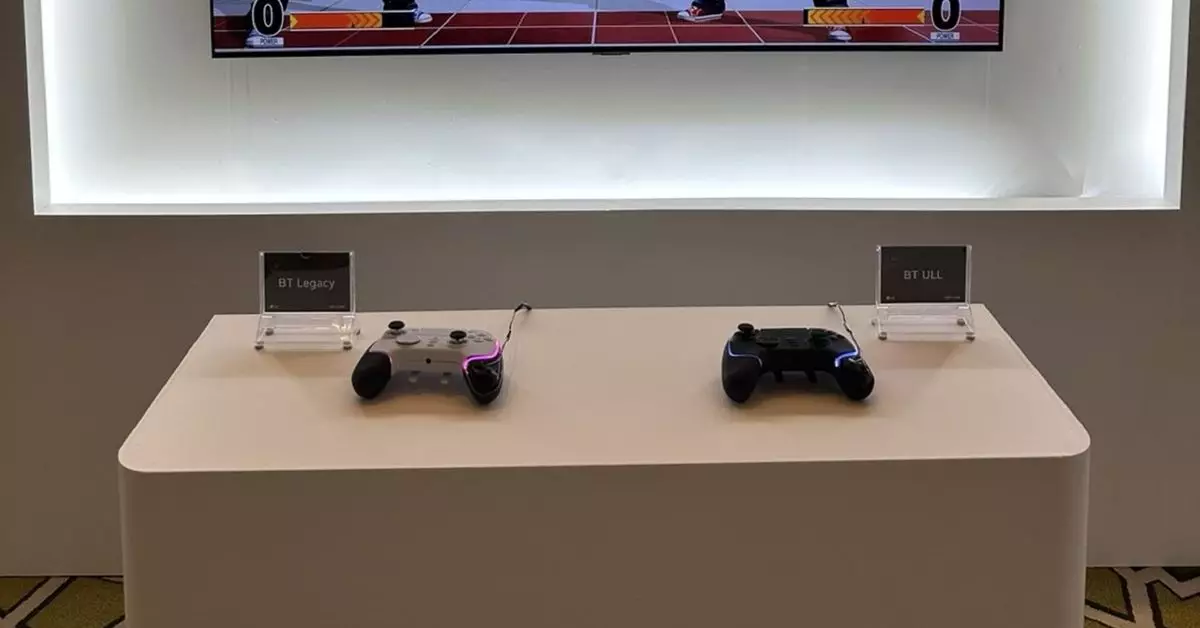In a world where responsive gameplay can make or break a player’s experience, LG’s collaboration with Razer and MediaTek has birthed a groundbreaking innovation in the realm of gaming controllers. The trio has unveiled plans for a novel Bluetooth gaming controller designed to bridge the existing gap between wired and wireless gaming experiences. By leveraging Ultra-Low Latency (ULL) Bluetooth technology, the prototype controller aims to achieve unprecedented responsiveness, potentially redefining the standard for cloud gaming.
Input lag, the delay between a player’s action and the corresponding reaction in-game, is a crucial factor for competitive gamers. Traditional wired controllers commonly exhibit minimal lag — usually in the range of 1 to 5 milliseconds — which provides an edge in fast-paced scenarios such as first-person shooters (FPS) or racing games. Conversely, wireless solutions have been criticized for their latency, often resulting in a delay of 10-20 milliseconds or more, depending on the specific model and environmental conditions. LG’s claim that their new controller can deliver a mere 1 millisecond of input lag is significant, as it could offer a performance level previously reserved only for wired setups.
The recent demonstration of this controller at LG’s webOS Summit showcased its superior performance compared to other unnamed devices. The testing spanned various gaming genres — from frenetic FPS battles to immersive racing scenarios — underscoring the potential benefits of ULL technology for cloud gaming enthusiasts. The implementation of such technology could facilitate seamless play, free from the frustrations associated with input delays that plague existing Bluetooth controllers. This advancement holds particular implications for the growing market of cloud gaming, which has seen surges in popularity and reliance on low-latency hardware.
Historically, efforts to mitigate input lag in gaming have faced substantial challenges. For instance, Google’s Stadia attempted to circumvent the issues of Bluetooth latency by allowing its controller to connect via Wi-Fi directly to its servers. While innovative, the subsequent shutdown of Stadia left many pondering future solutions. By bringing ULL Bluetooth support into the mix, LG and Razer may present a more sustainable model for addressing latency issues in gaming.
With the integration of ULL technology slated for implementation in select LG OLED and mini-LED televisions, the landscape for gamers continues to evolve. This promising technology is projected for launch in 2025, marking a pivotal moment for gaming hardware. Additionally, LG’s plans to certify third-party ULL-supported controllers ensure that broader market participation could enhance user accessibility and experience.
Although the specifics regarding pricing and release dates are currently unknown, the potential of LG’s ULL-capable controller and supported technologies is an exciting development for the gaming community. As we look toward CES 2024 for additional announcements, players and industry experts alike will be watching keenly to see how these innovations transform online gaming dynamics in the years to come.


Leave a Reply